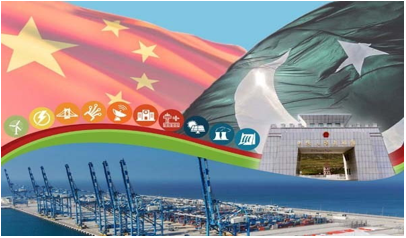INP-WealthPk
Ayesha Saba
Pakistan’s Special Economic Zones (SEZs) have great potential. Still, challenges remain, with experts calling for improving infrastructure, streamlining regulations, and offering stable incentives to help realise this potential and compete as a regional industrial hub.

During an interview with WealthPK, Prof Fakhrul Islam, a former director of the Pakistan Study Centre at the University of Peshawar, emphasised the need to reprioritise SEZ projects with a focus on developing small-scale and agro-based industries. He noted that large industrial ventures have not yielded the desired outcomes in Khyber Pakhtunkhwa, primarily due to structural and contextual challenges specific to the province.
According to him, SEZs hold the potential to significantly contribute to regional development, but this will only be possible if they are executed according to well-devised, localised plans. Prof Islam highlighted that properly functioning SEZs could provide an effective platform for foreign investors to harness the broader economic potential of CPEC.
These zones, he argued, could serve dual purposes: meeting domestic demand and opening up new avenues in international export markets. However, to achieve such outcomes, he stressed that SEZs’ development must be aligned with the aspirations, needs, and socioeconomic dynamics of the local communities.
“In order to make an SEZ sustainable, it should be built with the support of the local community to meet their needs, constraints, aspirations, and vision of development,” he said, adding that ignoring community involvement risks undermining long-term viability and social ownership of these projects. Prof Islam also pointed to a critical gap in effective policymaking.
“The gulf between the policymakers, the business community, and other stakeholders is the root cause of ineffective policymaking,” he observed. This fragmentation, he said, hinders cohesive policymaking and weakens the effectiveness of otherwise well-intentioned economic initiatives. While Pakistan has made efforts to establish several SEZs as part of its broader economic strategy, the outcomes so far have not fully met expectations, especially when compared to neighbouring countries like China and India.
These countries have successfully leveraged their SEZs to attract investment, increase exports, and generate employment. However, the same level of success has not been witnessed in Pakistan. Talking to WealthPK, Dr Hassan Daud Butt, former project director of CPEC and senior adviser at the Sustainable Development Policy Institute (SDPI), said Pakistan has made notable progress in establishing industrial parks under the CPEC initiative.
“However, the success of industrial parks in attracting FDI is closely tied to local conditions,” he said. Butt recommended that Pakistan adopt a more targeted approach, prioritising sectors where it holds a competitive advantage, including textiles, agriculture, and information technology. He noted that Pakistan’s investment climate continues to face significant challenges, including energy shortages, underdeveloped infrastructure, and regulatory complexities.
“These structural issues have created a difficult business environment. Nonetheless, with consistent, investor-friendly policies and focused development of SEZs, Pakistan has the potential to substantially improve its appeal to foreign investors. Addressing the current business-to-business trust and coordination gap is also essential to ensure the success of SEZs and to support the broader revival of the manufacturing sector,” he noted.
Credit: INP-WealthPk





